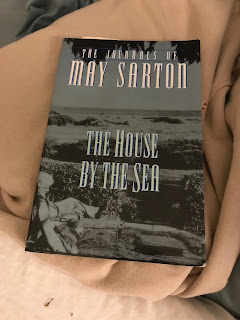 |
| Photo by Amy Brandon |
For a book I almost didn’t finish and certainly didn’t love, The Power by Naomi Alderman has dominated an awful lot of my thinking lately. So many questions, so many interpretations.
Most of the reactions of the women I know who’ve read this book seem to be centered around the female on male violence. That violence is what almost made me stop reading. I find myself abandoning books very often that include male on female violence because I’m tired of dehumanizing misogyny, and because I find any kind of violence disturbing. Perhaps an uncomfortable question to ask myself is why I was able to read past the dehumanizing female on male violence. I didn’t like it, and I felt like some of it went way too far, but I do understand the point the author was making with it.
The most common response I’ve heard from other readers, all of whom are female, interestingly enough, has been that they were disappointed with the way the women in the book used the power they were given. They all believe, as I do, that women would behave better. One person said that because women know what it is to be oppressed, she believes women would not jump straight to being oppressors. Another woman mentioned that women tend to be more nurturing and loving than men so it should follow that women would be kinder leaders. From the narrow view of my own experience, I agree with both of these assessments, but I don’t know many women who have survived the kinds of experiences that Allie, Roxy, and Tatiana (three of the women in The Power) survived. I don’t know what my reaction to men would be if I had lived their lives. I do understand their bent to revenge more than the character, Margot’s, who seems to be a power-at-all-cost politician. I have no personal knowledge of or experience with a woman like this, although I assume they exist.
Another common comment other readers made was that they liked the book for the first hundred pages or so but not after that. It was shortly after those first 100 pages that I remember thinking I might not be able to finish the book. I detest violence. I can’t even watch old cartoons, never could. I don’t care about power. I don’t understand the desire to be in control of another person. I don’t understand the concept of revenge at all. I do understand that I speak out of the privilege of my own safety.
Violence, revenge, control, and well, power, is what this book is about. Now, granted the book is hyperbolic and satirical, but those two traits don’t necessarily make the violence any easier to read. The plot moves along very well, and I’m sure for people inured to CSI and Law and Order and all those other TV shows the majority of us consume, the violence will not be an issue. Or anyway, it shouldn’t be. If you can consume male on female violence on a regular basis, then one book with a reversal should not be an issue for you. If you’re like me, and you generally eschew anything with violence, consider yourself forewarned. If you’re looking for love, peace, hope, or redemption, look elsewhere. Still, I think the warning this book provides makes it worth reading.


